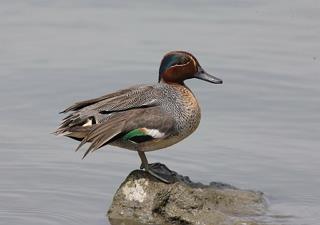City on Alert over H5N6 Bird Flu
In light of a recent case involving a dead goose in Hualien County testing positive for avian influenza A (H5N6) virus, Taipei City Animal Protection Office (APO) stated that the City continues to implement monitoring and control measures which have been adopted since 2006. According to the agency, the city government has established 85 sampling spots across Taipei’s poultry businesses, bird shops, and parks where birds congregate. As of February 6 this year, APO has inspected 98 cases and no traces of bird flu were detected. APO added that anti-disease campaigns, routine checks, and sterilization effort targeting poultry businesses have been conducted between late 2016 and January this year to counter the spread of H5 and H7 strains of avian influenza during the bird migration season from October through February. With confirmed cases of human infection with H5N6 virus reported in China but no such cases found in Japan and South Korea, APO suggested that the cause of the disease likely has to do with illegal poultry slaughter. APO urges the public to take the following precautions against bird flu: Six “Don’t”: Three “Do”:
1. Don’t approach, contact, or feed birds, particularly migratory birds.
2. Don’t visit poultry farming sites or bird displays in avian flu affected areas.
3. Don’t buy poultry meat from questionable sources.
4. Don’t touch, sell, purchase, or consume sick birds.
5. Don’t engage in illegal poultry slaughtering activity.
6. Don’t eat raw poultry or egg products which aren’t thoroughly cooked.
1. Wash hands frequently: Wash hands with soap after touching poultry meat, birds’ feces, or eggs.
2. Eat cooked food: Avian influenza viruses are susceptible to high temperatures, so chicken and eggs should be properly cooked before consumption.
3. Maintain a balanced diet, exercise regularly, get sufficient sleep and rest, and reduce stress.


![Taiwan.gov.tw [ open a new window]](/images/egov.png)
